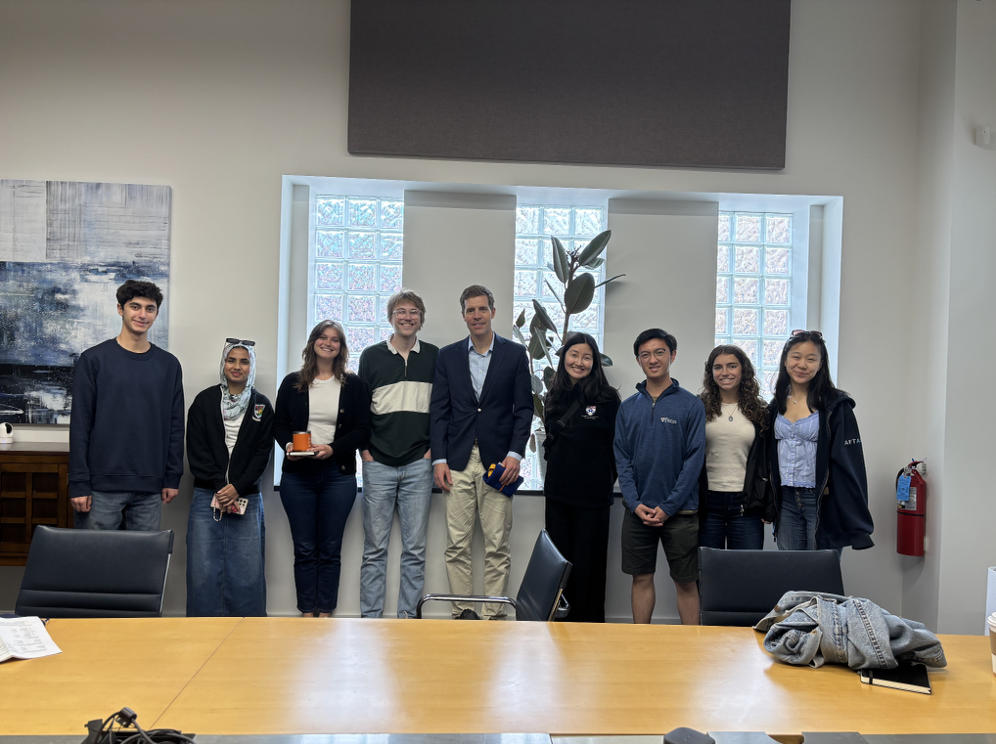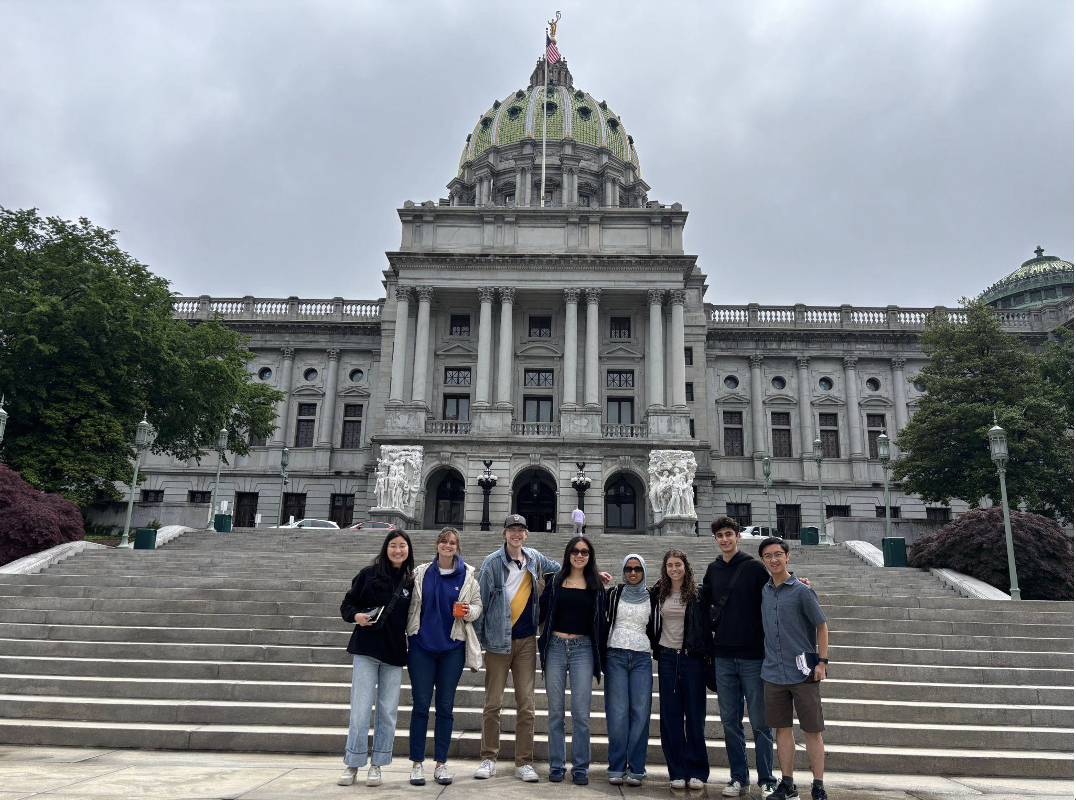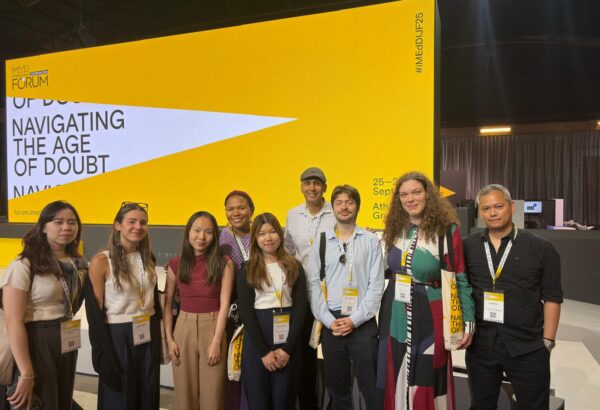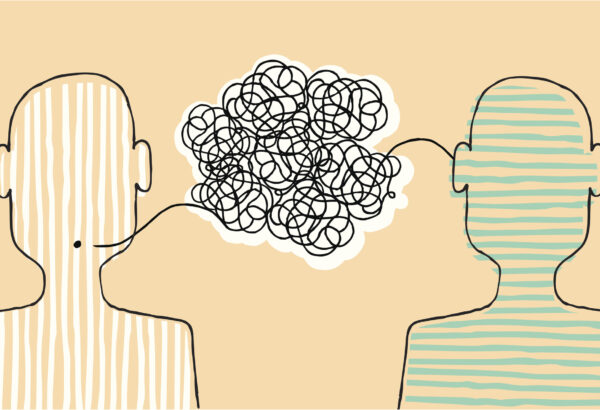Over our five days together, the team traveled to eleven locations across the state of Pennsylvania: Allentown, Scranton, Hazleton, State College, Johnstown, Pittsburgh, Connellsville, Bedford, Carlisle, Harrisburg, and Lancaster. In our conversations with our fellow Pennsylvanians, including local leaders, business owners, workers, grandparents, reporters, first responders, and other students, we exercised our connection-building skills and encountered political realities at play in our state. Reflecting on the trip in the past month, three key takeaways are at the top of my mind. First, even one week of intentional travel is enough to profoundly strengthen one’s connection-building skills, second, the political value of affordability and respect cannot be overstated, and, third, everybody, at the end of the day, wants to be listened to.
Intentional travel
Unlike last summer’s Political Empathy Lab, which ran for ten weeks, this second project only saw the team on the road for one week. As a returning research assistant, this was on my mind as we began our trip, and I’m sure it was on Dr. Howard’s as well. Stated very generally, the purpose of travel for the Political Empathy Lab is twofold: first, to practice the social-emotional skills necessary to make empathetic political connections, and, second, to become intimately acquainted with Pennsylvania, Pennsylvanians, and their needs. In only one week, would we be able to achieve a similar depth of learning in either of these areas, compared to our ten weeks last summer? Looking back on the trip, my answer to this question is a resounding “yes.”
The team approached the demands of the trip, both internal and external, with focus and care. Travelling with PEL isn’t relaxing. I’ve been thinking of it as intentional travel in my reflections on this second trip. It requires personal and social energy, as well as a lot of attention: attention to oneself, to the rest of the team, and to the places and people the team encounters. This isn’t easy, but if one gives it the amount of care that this second PEL team did, it is incredibly rewarding. Over our week together, the team grew close enough together to engage genuinely and vulnerably about the experiences we had together, and we also each grew in our confidence in ourselves to build connections with the people we met outside of the team. Every one of us learned more about the state of Pennsylvania, especially from local leaders like councilwoman Laura Huchel in Johnstown and community center director Rosanna Garbiel in Hazleton. The challenge of intentional travel with PEL, even over a single week, is a powerful exercise for connection-building skills and for intimate engagement with the state of Pennsylvania.
Affordability and respect
At Penn, we like to make things complicated, and don’t get me wrong, that’s a good thing! As an English major, I certainly enjoy getting lost in the weeds and talking about politics in very theoretical terms, and it’s absolutely important to analyze our world on a higher level. However, what we’d do well to remember, lest our position of privilege at Penn allow us to forget, is that politics doesn’t actually happen in the theoretical or in the analytical. It happens in breakfast, lunch, dinner, and work, in a firefighter’s granddaughter growing up, in a hospital closing in Scranton, in neighbors not having a place to stay. It happens in Johnstown getting a little emptier each year, and it happens in your neighborhood thriving and green with parks for your children. It happens in having money to buy healthy food, and it happens in not having that money. Politics happens in the real world, and it’s not much more complicated than that.
Just about every conversation I’ve had across my two summers with Political Empathy Lab has echoed this reminder, and if you listen for it in your own conversations, in your own life, you’ll hear it too. I’ll give an example. The first conversation that I had on our trip this summer, in Allentown, was with a man who was walking towards me and another research PEL assistant, Kaynath Chowdhury, on the sidewalk. I stopped him with a brief introduction—“I’m a student working on a research project, I’m from the University of Pennsylvania, do you have a minute to chat?” The first question I asked was simply, “how do you feel about living in Allentown?” With no hesitation, the man explained to me and Kaynath that he was worried that the new, expensive apartment buildings and other developments in the center of the city were beginning to drive housing prices up and longtime Allentown residents out. He told us that his rent was already over $1,000, and that it had been increasing. He wants himself and his neighbors to be able to afford their homes and to not be forced out of them. Gentrification isn’t just a theoretical thing; it’s literal. Politics can’t be addressed only in theory; they must be addressed with action.
Campaigning on affordability and respect works consistently. As Donald Bonk, president of the University of Pennsylvania Alumni Club of Western Pennsylvania, explained to the PEL team in Johnstown, Donald Trump’s 2024 campaign promise of a revitalized American manufacturing sector was effective in Pennsylvania. It resonated with a post-steel white working class that, over the past 50 years, has seen stable union steel jobs replaced by online shopping warehouses and low-pay hospital work—and has been able to afford less and less as a result. Another major strategy of the Trump campaign has been relentless messaging against “coastal elites” that don’t respect the “average American.” Facetious as this is, given the Trump administration’s alliances with most American billionaires, the messaging sways voters in areas like Johnstown that have been exploited and disrespected on the grounds of class, going back to the days of steel magnates like Andrew Carnegie. In the 20th century, that class antagonism was harnessed by the left-wing labor movement. Now, it’s been moved squarely behind Trump and the right.
 The political value of affordability and respect isn’t lost on Pennsylvanian politicians. In Pittsburgh, the PEL team met former US Representative Conor Lamb. In 2018, Lamb won a special election for Pennsylvania’s 18th congressional district after the incumbent Republican congressman, who had run unopposed the last two elections, resigned suddenly. Lamb told us that, during his campaign, he highlighted the labor and union themes that had, in the decades before the collapse of the steel industry, made the area a stronghold for Democrats. Though economic populism seemed to be dominated by Trump in the 2024 election, Lamb’s case makes clear that affordability and respect have political power across the board.
The political value of affordability and respect isn’t lost on Pennsylvanian politicians. In Pittsburgh, the PEL team met former US Representative Conor Lamb. In 2018, Lamb won a special election for Pennsylvania’s 18th congressional district after the incumbent Republican congressman, who had run unopposed the last two elections, resigned suddenly. Lamb told us that, during his campaign, he highlighted the labor and union themes that had, in the decades before the collapse of the steel industry, made the area a stronghold for Democrats. Though economic populism seemed to be dominated by Trump in the 2024 election, Lamb’s case makes clear that affordability and respect have political power across the board.
Everybody wants to be listened to
As our trip this summer began, I was curious to see how the new team would react to the method. Starting extended conversations with strangers on the sidewalk is not a large part of many of our lives, and it can be daunting. So, one reflection that the team had on our first day stuck with me: people were more willing to talk than they expected. This resonated with me. Last summer, I was shocked that when I, a visibly anxious 19 year old brandishing a notebook, stopped people on the street to ask about “politics” or “issues that matter to you” or “how things are going in your town,” they, more often than not, took me seriously and genuinely engaged.
This confused me until I thought about my own life. I’ll never be the most extroverted, but when I feel comfortable, when someone makes me feel heard, I want to talk! I do have a lot to say, and so does everyone I know. Why would it be any different for people that I don’t know? Of course people are willing to talk, as long as you’re willing to listen.
Looking forward
Reflecting on my time with the Political Empathy Lab, including this summer’s trip, I’m glad to have experienced my home state on a deeper level than I ever have before. I’ve learned more about its politics and its people, and I’ve learned about myself. On top of that, I’ve been able to do all of those things with Dr. Howard and with other students in a community that genuinely values empathy and hopes to see our political culture grow towards an empathetic future. If I had to pick one thing that PEL has given me above all else, it’s that hope.
Noah Kocher (C’27) is an SNF Paideia Fellow majoring in English.




